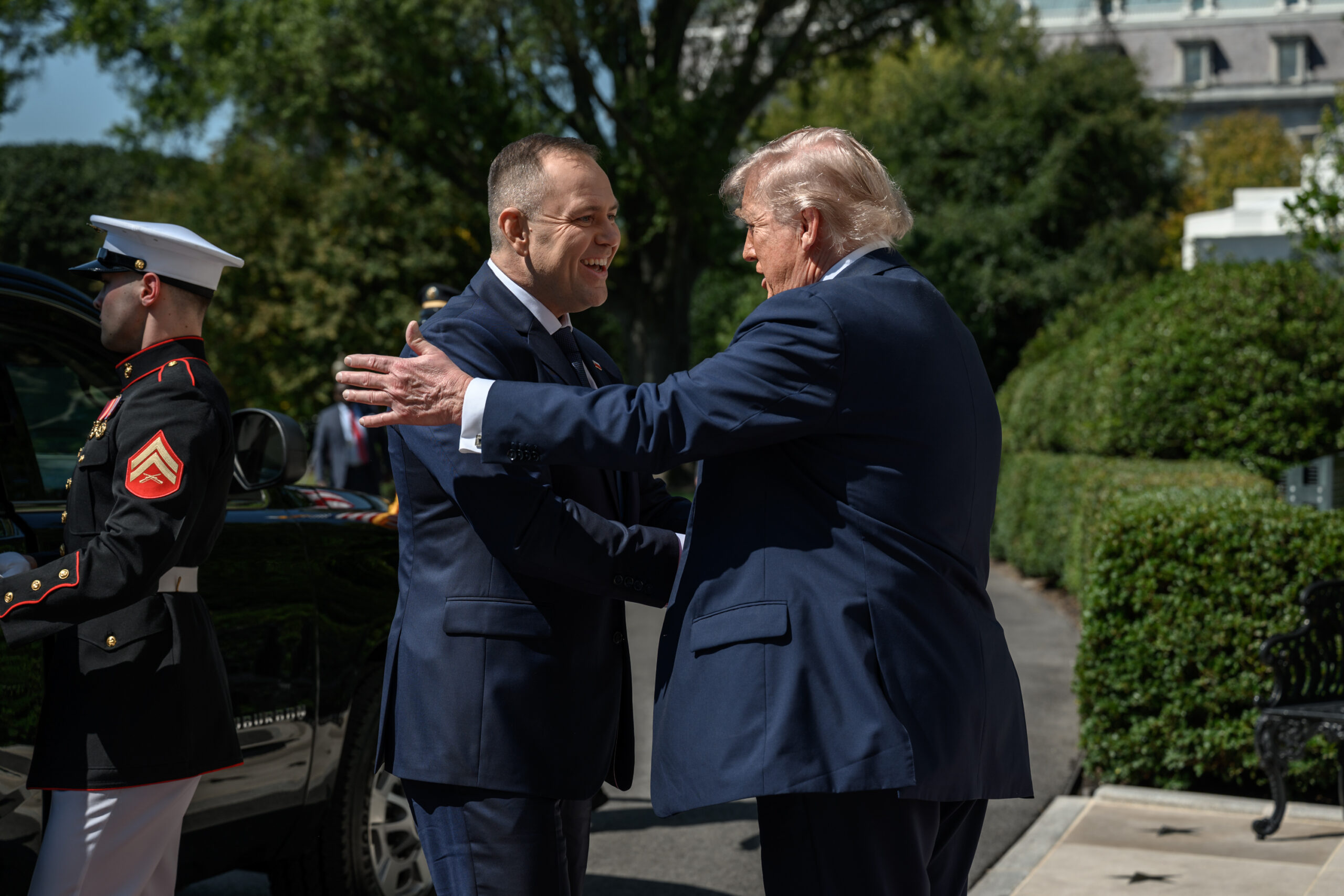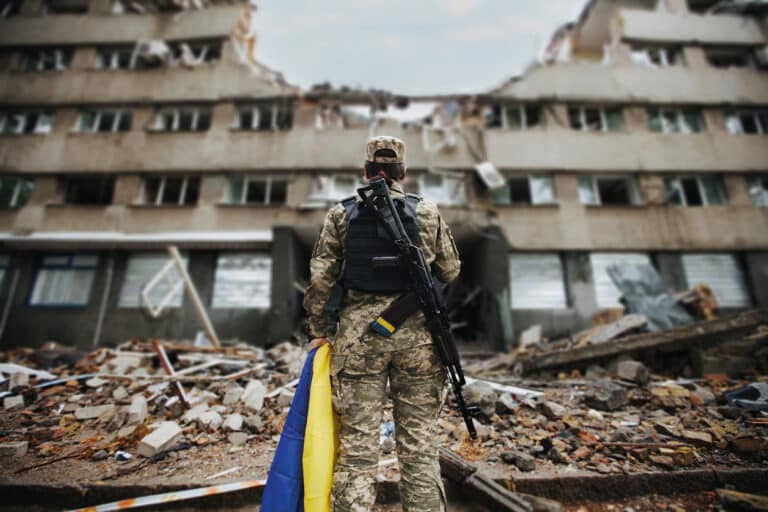Opposition Nervousness After the President’s Visit
President Nawrocki handled himself brilliantly, and his relations with Washington are very good. On security issues—crucial to public opinion—this matters enormously. To build ties with the Americans, he needs neither the government nor guidance from the Foreign Ministry. And that is precisely what troubles Prime Minister Tusk.
Marcin Palade – President Nawrocki’s visit to the United States is behind us. It was an extremely successful one—something underlined by supporters of the right and hard to dispute even for political opponents. Because the facts speak for themselves. Just compare two images. The first: a meeting of several European politicians from the so-called “coalition of the willing.” Trump sits at the table while the others politely sit on chairs at a distance from the host, eyes downcast. The second: Trump and Nawrocki standing side by side, as equals. You can see the chemistry between them. And in politics, especially international politics, that is priceless. Particularly in relations with such a narcissistic host as the White House occupant.
Yet in Poland there is no shortage of those who try to spin the Polish president’s evident success into a failure. This includes parts of the mainstream media—obsessively looking for flaws. They criticized Nawrocki’s English, his gestures, his smile, his posture. The attacks became increasingly grotesque and foolish.
This nervousness stems from a simple fact: President Nawrocki performed excellently, and his relations with Washington are very good. On matters of security, which are vital for the public, this carries enormous weight. And in managing ties with the Americans, he doesn’t need the government or advice from the Foreign Ministry. That is precisely what bothers Prime Minister Tusk. Because he himself can only dream of a White House visit. The doors in Washington remain closed to him. Not because of his conflict with Nawrocki, but because of what he himself once said and did toward Donald Trump. In the 2023 campaign, he outright called him an agent of Russian intelligence. He added hostile gestures—like a 2018 photo he flaunted in his book Sincerely, where he jokingly posed with a gun to the back of the American president. Tusk was convinced this would help him in European salons—where Trump never was, and never will be, popular.
The problem is that Prime Minister Tusk bet everything on one card: the belief that after Joe Biden, Kamala Harris would come, and everything would align with the Democrats’ plans. Instead, in November 2024, Americans elected Trump. That Republican victory night must have been a nightmare for Donald Tusk. From that moment on, it was clear that in the new U.S. administration, Poland’s prime minister was a written-off politician—almost a persona non grata.
Radosław Sikorski’s position is not much better. Tusk tasked him with overshadowing the president’s success with his own visit. He attended the ceremony of presenting the Solidarity Award to a Cuban opposition activist, which in itself was of little significance, but it offered a hook—the presence of Secretary of State Marco Rubio. The meeting was portrayed as proof that the government was not isolated in Washington. But Sikorski couldn’t go any higher. It all ended with a childish photo in front of the White House—as if that could convince anyone. The effect? A flood of memes and mockery online.
Meanwhile, the Americans are ruthlessly pragmatic in politics. They know they must play on many instruments. That’s why the president met the president, and the secretary of state met the foreign minister. Such a division of roles is pure business calculation. On one side, strategic talks; on the other, practical matters like arms purchases. Each level of relations has its place.
In numbers, the contrast between the two visits is even clearer. According to data from @Politykawsieci by the Res Futura Foundation, materials related to Sikorski’s presence had 35 million views, but as many as 63 percent of comments were negative, with only 22 percent positive. In Nawrocki’s case, the proportions were exactly the opposite. The conclusion? The mission in Washington was won by the Polish president. Sikorski’s poor ratings are further proof of the weakening of Tusk’s camp.
More and more voices can be heard within the ruling coalition calling for a deep reshuffle. Gazeta Wyborcza and Newsweek—until recently friendly to Tusk—have begun writing about him more sharply. Particularly significant are signals from Newsweek, given its ownership. The conviction that it’s time to change the prime minister is becoming bolder.
On the shortlist of names, essentially only one appears—Radosław Sikorski. He would replace Tusk and become the face of a “new opening.” The problem is that Sikorski also has a dreadful record in relations with Trump. His wife, Anne Applebaum, has long been known for her fierce criticism of the Republican, and Sikorski himself has often attacked him on social media. Maybe not as bluntly as Tusk, but enough to ensure he is treated with caution in Washington.
That leaves him with Europe—still convinced it matters on the world stage. Reality, however, brutally proves otherwise. We saw it recently in Washington, and also in Beijing, when Commission President Ursula von der Leyen was bussed from the plane like an ordinary summit attendee. It was a symbol of the Old Continent’s current position.
In domestic politics, the Democrats’ hope is that simply replacing the prime minister will improve ratings and give them a chance in the 2027 elections. But limiting the choice to just one person—in such a supposedly broad and wise camp—is proof of Tusk’s politics, which for two decades eliminated rivals within the party. And even if the Germans and allies across the Channel agree to the change, it will not solve the broader crisis of trust.
Today’s center-left government suffers from the same illness as its predecessors after 1989—the belief in its own uniqueness and infallibility. The leaders’ egos exceed the bounds of common sense. In Sikorski’s case, it goes even further, and if he were given an extra dose of oxygen in the form of a promotion to prime minister, the question would not be whether the balloon bursts, but when—and with what noise.







